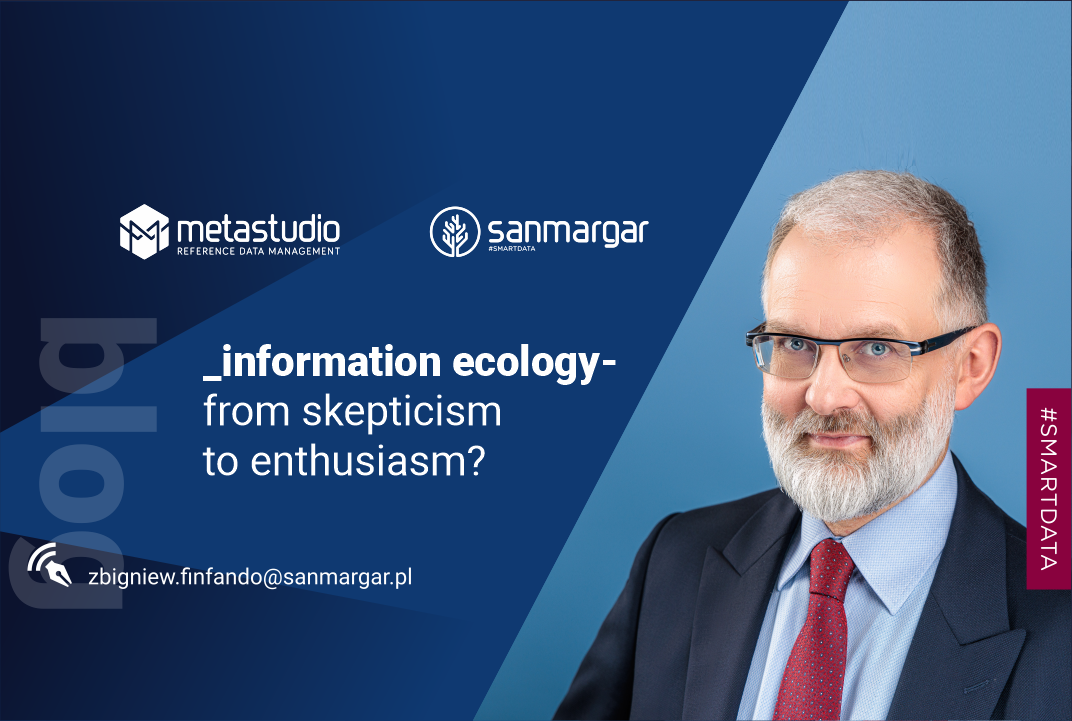A few years ago, I had the opportunity to attend a lecture entitled “Information ecology.” The lecture focused on the relationships between information and ecosystems, with particular emphasis on environmental pollution and medicine. Initially, I approached this topic with great skepticism, regarding it as another theoretical concept without practical application.
However, recently, the topic came up again during a conversation about possible directions for my son’s education. It turned out that information ecology is one of the study fields, currently doctoral, at several Polish universities. They are usually the result of collaboration between faculties of mathematics, computer science, biology, ecology, and physics. The scope of these studies encompasses all aspects related to the study of the impact of information on the functioning of various ecosystems. Everything is clear, but how can such research be practically utilized? A quick question to #chatGPT and here is the answer:
- the impact analysis of eco-labels on purchasing decisions,
- the impact of digital transformation on the environment,
- the impact analysis of IT tools on organizational efficiency and sustainable development,
- the impact analysis of information content on the environment,
- the impact analysis of virtual reality on ecological behavior.
The answers to these questions are not obvious, and assigning them to traditional research fields is not easy.
One of the most important conclusions related to information ecology is that information affects our environment. In the digital age, where data processing is an integral part of our lives, explaining the relationship between information and the environment is becoming an increasingly urgent problem. Using large amounts of data increases the demand for energy needed for their processing and storage. Therefore, it is important to evaluate which data is actually necessary and which can be removed to minimize the negative impact on the environment. On the other hand, can we unequivocally state that more information has a negative impact on the environment? Perhaps the cost of storing information is negligible compared to the benefits they bring.
A short survey among friends confirms that information ecology is slowly emerging in the business world, most often in the form of initiatives related to regulations. I wonder how quickly initiatives based on concrete business needs will appear? New study fields that break away from traditional knowledge divisions seem to confirm that we won’t have to wait too long.




